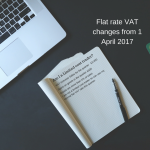This is our first of two blogs about rental income from residential lettings. Our second blog will consider the tax relief restriction on mortgage interest which came into force from April 2017.
Are you a landlord or are you thinking about becoming one? Do you know what things you need to consider?
If I have rental income do I need to complete a tax return?
If your profits from property are under £1,000 there is a property allowance which means that no tax is due and you will not need to complete a tax return unless you need to complete a tax return for other reasons.
If your rental profits are between £1,000 and £2,500 per year you should contact HMRC. Collecting any tax due through your tax code might be possible rather than you needing to complete a tax return.
You will need to complete a tax return if:
- Your rental profit after allowable expenses is between £2,500 and £9,999
- Your rental income before deducting allowable expenses is more than £10,000.
What expenses can I deduct?
Generally, you can deduct any costs that you pay relating to the rental property. This includes insurance, letting agents fees, utility bills, mortgage interest (note not the capital element) and repairs. You cannot claim for any capital costs such as putting in a new kitchen or legal fees in relation to the purchase or sale of the property.
You might also be able to claim pre-letting expenses such as utility bills whilst waiting for a tenant.
Replacing furnishings
Landlords of residential properties (furnished and unfurnished) can claim for the actual cost of replacing furnishings. This includes things such as beds, sofas, fridges, carpets and curtains. It does not include things such as toilets, baths, boilers and fitted kitchens.
These rules only apply to the replacement costs not the initial costs of furnishing a property.
Up to 5 April 2016, landlords of furnished residential lets could deduct 10% of their rental income as a ‘wear and tear allowance’ to cover the replacement of furniture and equipment but this has been abolished.
Rent a room relief
If you rent out a furnished room in your house rather than renting out the whole house you can claim rent a room relief.
You can claim rent a room relief of £7,500 per year. This is halved if you share the income with your partner or someone else.
Rent a room relief also applies if you rent out an entire floor in your house. Rent a room relief does not apply where a house has been converted into separate flats.
The limit is the same even if you rent the room out for less than 12 months.
If you claim rent a room relief you will not be able to deduct any other expenses.
This is an automatic tax exemption if you earn less than the threshold. This means that you do not need to do anything if your income from the room etc is less than £7,500 per year.
If your income exceeds the threshold you will need to declare the income on a tax return and you can choose whether to deduct the rent a room relief or actual expenses incurred.
Furnished holiday lets
If your property meets certain criteria it will qualify as a Furnished Holiday Letting (FHL). There are specials rules which can make it more tax efficient than just a normal rental property:
- You can claim capital gains tax reliefs for traders. Entrepreneurs’ relief is one such relief where any gain on the sale of the property would be taxed at 10% rather than the current 18%/28%.
- Capital allowances can be claimed on items such as furniture, equipment and fixtures. This means that you might be able to get 100% tax relief on an asset where you might not be able to claim anything under a normal let.
- The profits count as earnings for pension purposes
To meet the FHL rules the property must be:
- in the UK or EEA (including Iceland, Norway and Lichtenstein)
- let furnished
- available as a FHL for at least 210 days in the year
- let commercially for at least 105 days a year (longer lettings of at least 31 days are excluded from this)
Stamp duty land tax
Individuals buying a second home or a buy to let residential property have had to pay an increased rate of stamp duty land tax. This is 3% more than the usual rates starting with properties valued at more than £40,000.
The higher rates will not apply if at the end of the day of the transaction an individual owns only one residential property, irrespective of the intended use of the property.
Married couples and civil partners living together are treated as being one unit and property owned by either partner will be relevant when determining if an additional property is being purchased or not.
Next time…..
Our next blog in this series looks at the restriction of tax relief on mortgage interest from April 2017.
Useful links
Gov.uk – HMRC guidance on renting out a property
Please do not hesitate to contact us if you have any queries on 01452 260960 or [email protected]








